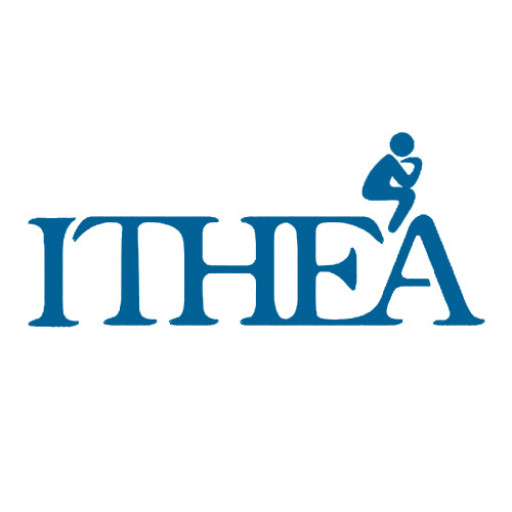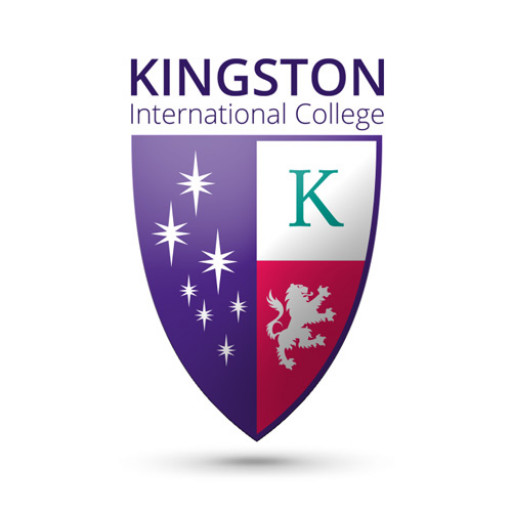Photos of university / #utrechtuniversity
Development and Socialisation in Childhood and Adolescence is a comprehensive master's programme offered by Utrecht University that explores the psychological and social development processes of children and adolescents. This programme provides students with a deep understanding of how children develop cognitively, emotionally, and socially from early childhood through adolescence, and how various factors influence this development. The curriculum covers key topics such as developmental theories, family and peer influences, education, and the impact of societal and cultural contexts on development. Students learn to apply scientific research methods to study developmental processes and to analyze issues related to socialisation, including identity formation, peer relations, and behavioral problems. The programme emphasises the importance of applying theoretical insights to real-world situations, equipping students with skills necessary for careers in research, psychology, social work, education, or policy advisory roles. Students also gain practical experience through research projects and collaborations with experts in the field. Utrecht University's multidisciplinary approach ensures that students are prepared to address complex developmental issues with scientific rigor and practical sensitivity. Upon graduation, students will possess an in-depth understanding of childhood and adolescence development, enabling them to contribute effectively to improving child and youth welfare, educational practices, and social policies. This programme is ideal for individuals passionate about supporting healthy development in young populations and interested in pursuing careers that require a thorough knowledge of developmental psychology and socialisation processes during childhood and adolescence.
Development and Socialisation in Childhood and Adolescence is a specialized master’s programme offered by Utrecht University that focuses on understanding the complex processes of development and socialization during the formative years of childhood and adolescence. This programme provides students with a thorough grounding in developmental psychology, rooted in empirical research and theoretical frameworks, to better understand how children and teenagers develop cognitively, emotionally, socially, and morally. The programme explores key topics such as temperament, personality development, family influences, peer relationships, educational impacts, and digital media effects on young people. Students will examine how various environmental factors shape developmental trajectories and influence behavioural outcomes over time.
The curriculum combines coursework, research projects, and practical training to equip students with essential skills for working with children and adolescents in diverse settings such as schools, healthcare, social services, and research institutions. Core courses cover developmental theories, methodology, assessment techniques, and intervention strategies tailored to different developmental stages. In addition, special attention is given to contemporary issues such as child and adolescent mental health, bullying, inclusion, digitalization, and the role of culture and society in shaping development. Students also learn about ethical considerations and professional practices necessary for conducting research and applying knowledge responsibly in real-world contexts.
Throughout the programme, students are encouraged to develop a holistic perspective that considers biological, psychological, social, and ecological factors influencing development. They acquire practical skills through individual and group assignments, fieldwork, and collaborations with professionals in the field. The programme also emphasizes the importance of intercultural competence and global perspectives, preparing graduates to work in increasingly diverse environments.
Graduates of the Development and Socialisation in Childhood and Adolescence master’s programme will be well-equipped to pursue careers in research, policy development, education, clinical practice, or consultancy in child and adolescent development. They will be capable of critically analyzing current issues, designing evidence-based interventions, and contributing to the promotion of healthy development in children and adolescents locally and internationally. This transformative educational experience aims to foster academic excellence, practical expertise, and a deep understanding of the developmental processes that shape young lives.
Admission requirements
Students with a GPA of 3.4 (or the Dutch equivalent of 7.5) or higher are eligible. Students with a GPA between 3.0 and 3.4 (Dutch equivalent: 7 or better) may be eligible and will have a chance of being selected if their previous studies fit well with the Development and Socialisation in Childhood and Adolesence programme, according to the programme's Admissions Committee.
Other requirements
- gemiddeld cijfer Students with a GPA of 3.4 (or the Dutch equivalent of 7.5) or higher are eligible. Students with a GPA between 3.0 and 3.4 (Dutch equivalent: 7 or better) may be eligible and will have a chance of being selected if their previous studies fit well with the Development and Socialisation in Childhood and Adolesence programme, according to the programme's Admissions Committee.
- gemiddeld cijfer Students with a GPA of 3.4 (or the Dutch equivalent of 7.5) or higher are eligible. Students with a GPA between 3.0 and 3.4 (Dutch equivalent: 7 or better) may be eligible and will have a chance of being selected if their previous studies fit well with the Development and Socialisation in Childhood and Adolesence programme, according to the programme's Admissions Committee.
- minimum kennis (ISPAC: overige vereisten) This programme has a statistical entry requirement, which entails the following: 1. a basic course in introductory statistics including topics such: univariate descriptive statistics, correlation, univariate regression, one-way analysis of variance (both descriptive and inferential) and a basic course in the methodology of behavioural and/or social science research (experimentation, surveys, observational studies); 2. knowledge of multivariate analysis tools such as factor analysis, reliability, multiple regression, analysis of variance, dummy variables; 3. hands on experience with the tools just mentioned (for example, experience with SPSS). In total, it is expected that studentes have followed courses totalling approximately 20 EC. If either (2) or (3) is (partly) lacking, this can be remedied in a course of multivariate analysis offered by the Summer School of Utrecht University.
- minimum kennis (ISPAC: overige vereisten) This programme has a statistical entry requirement, which entails the following: 1. a basic course in introductory statistics including topics such: univariate descriptive statistics, correlation, univariate regression, one-way analysis of variance (both descriptive and inferential) and a basic course in the methodology of behavioural and/or social science research (experimentation, surveys, observational studies); 2. knowledge of multivariate analysis tools such as factor analysis, reliability, multiple regression, analysis of variance, dummy variables; 3. hands on experience with the tools just mentioned (for example, experience with SPSS). In total, it is expected that studentes have followed courses totalling approximately 20 EC. If either (2) or (3) is (partly) lacking, this can be remedied in a course of multivariate analysis offered by the Summer School of Utrecht University.
- schriftelijk verzoek We ask for a motivational letter including curriculum vitae, and two reference letters
- cijferlijst We ask for a GPA of 3.4. Students with a GPA between 3.0 and 3.4 may be eligible and will have a chance of being selected if their previous studies fit well within the programme, according to the programme's admissions committee.
The Financing of the Development and Socialisation in Childhood and Adolescence program at Utrecht University primarily relies on a combination of Dutch government funding, student tuition fees, and additional financial support options. As a Dutch higher education institution, Utrecht University Tuition Fees are determined annually by the Dutch government, and students enrolled in this program are required to pay these fees, which vary for EU/EEA students and non-EU students. International students from outside the European Union typically pay higher tuition fees, which contribute substantially towards the program’s funding.
In addition to tuition fees, many students pursue scholarships and grants to support their studies. Utrecht University offers a range of scholarships for both domestic and international students based on academic merit, financial need, or specific criteria such as country of origin or field of study. Examples include the Holland Scholarship, Utrecht Excellence Scholarships, and other university-specific funding options. These scholarships can offset tuition costs and living expenses, making the program more accessible to a broad range of students.
The Dutch government also provides various funding opportunities, grants, and loans for students, especially those studying in fields deemed of societal importance such as development and socialisation. The Dutch Ministry of Education, Culture and Science allocates budget to universities, which in turn utilize these funds to support research and educational activities related to childhood and adolescence development.
Research grants from national and European research agencies also play a critical role in financing the program’s research components. These grants support faculty and student-led research projects, conference participation, and publication activities, which are integral to the program's curriculum and academic standards.
Additionally, the university encourages partnerships with external organizations, government agencies, and non-profits interested in childhood development and socialisation. These collaborations often come with funding opportunities, internships, or project-based financial support that enhance both the educational experience and research capabilities.
Operational costs such as faculty salaries, course materials, facilities, and administrative expenses are funded through the combination of all above sources. Utrecht University also benefits from the European Union’s funding programs, such as Erasmus+ and Horizon Europe, which support international cooperation and research in social sciences and education.
In summary, the financing structure of the Development and Socialisation in Childhood and Adolescence program at Utrecht University is a multifaceted combination of government funding, tuition fees, scholarships, research grants, and external partnerships. This diversified financial base ensures the continuity and development of the program, allowing it to maintain high academic standards, invest in research, and provide opportunities for students from diverse backgrounds.
Development and Socialisation in Childhood and Adolescence at Utrecht University is a comprehensive master's program designed to explore the psychological and social development processes that occur from childhood through adolescence. This program offers students in-depth knowledge of the theories and research methods related to developmental psychology, focusing on how social, emotional, cognitive, and behavioral aspects evolve during these critical years. Students will examine various factors influencing development, including family, peers, technology, and socio-cultural environments, gaining insight into the mechanisms that promote healthy development as well as the challenges faced by children and adolescents. The curriculum combines core theoretical courses with practical research components, preparing students to work effectively in research, policy, or applied settings. The program emphasizes evidence-based approaches and encourages students to critically analyze developmental phenomena using sophisticated research tools and methodologies. Utrecht University has a strong reputation for its focus on developmental psychology, and the program benefits from the university’s excellent research facilities and collaborations with practitioners and institutions involved in child and youth development. Graduates of this program are equipped to work in various fields such as clinical practice, educational settings, youth work, policy development, and research organizations. The program usually takes one year to complete and is taught in English, attracting students from all over the world who are interested in understanding and promoting optimal development in children and adolescents. By the end of the course, students will have developed both theoretical expertise and practical skills necessary for conducting high-quality research or applying knowledge in real-world settings to support healthy development and effective socialisation processes in young populations.








